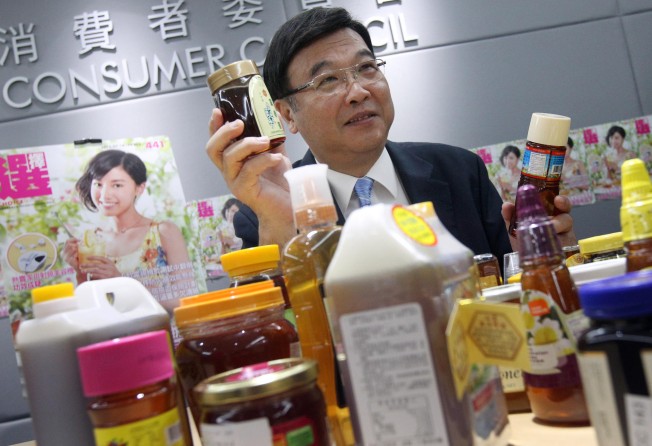NZ vows to look into Hong Kong's manuka honey test findings
Consumer Council study which found traces of sugar in manuka honey may have been distorted by other variables, expert suggests

New Zealand's Ministry of Foreign Affairs and Trade says it is treating the Consumer Council's honey test findings very seriously, after the tests revealed traces of sugar in some manuka honey brands sold in Hong Kong.
A ministry spokesman said it would work with Hong Kong to understand problems relating to New Zealand manuka honey.
"We will be engaging the council and other relevant Hong Kong agencies [to find out] how the tests were conducted and more specific detail on the New Zealand branded product involved in the test," he said.
The spokesman added that the ministry was aware of other tests in the past that had returned "false positives" for sugar.
Manuka honey is produced by bees that collect the nectar from the manuka tree. Produced mainly in New Zealand, it is marketed for its antibacterial and health-enhancing properties.
Last week, the Consumer Council said it found small quantities of sugar in several brands of honey sold in Hong Kong, including New Zealand's UMF manuka honey. The global standard for honey says it should not contain any added ingredient.
The Unique Manuka Factor (UMF) Honey Association - the governing body for manuka honey - said it could not reliably examine why its products tested positive for sugar.
More research was critical to understand what its members were selling in order to protect the NZ$100 million (HK$614 million) industry, it said.
"The bee does not necessarily collect from the same flower, and that's one of the difficulties we face," said the association's general manager John Radcliffe. "When you get the honey [in New Zealand], it is mainly manuka - 50 to 70 per cent pure.
Professor Gordon Maxwell, a New Zealander and an environmental studies lecturer at the Open University with 25 years of experience in honey research, said many variables could distort honey test results.
Some flowers had been found to contain sucrose and some types of nectar had also tested positive for carbohydrates, Maxwell said. "Seasonality changes the exact chemical structure of the nectar … [It] is not a constant," he said.
Maxwell said the council was sensationalising its findings. "If this were a student writing a report on their investigation, I would give it 40 per cent, barely a pass," he said, adding that the council did not do its homework before conducting the tests.
Both Maxwell and Radcliffe also believed the council had wrongly interpreted the global standard of honey as having to contain no added ingredient.
The sugar detected in the tests could have been in the honey from the start, they suggested
Radcliffe said of the UMF Honey Association's products: "It is the world's premium honey product and it is open for in-depth scrutiny.
"It is not a debate on whether [the findings were a result of] good or bad testing. We need to work harder and faster to make sure there is better science to represent this unique product."
He added that the council's findings were "not helpful" to both the association's honey exports and New Zealand's global image.
Radcliffe said the manuka honey industry was set to embark on a two-year study to profile its product's basic composition. It was hoped the research would reveal why sugar was found in the product.
The Consumer Council could not be reached for comment.